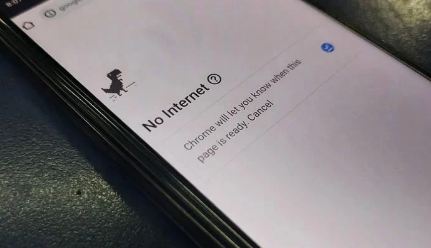Increased ‘surveillance’ blamed for internet slowdown in Pakistan

Internet speeds witnessed around 30% to 40% reduction, reveals WISPAP chairman
ISLAMABAD, AUG 15: As internet users in Pakistan continue to reel under prevailing access and speed issues, the Wireless and Internet Service Providers Association of Pakistan (WISPAP) has blamed the phenomenon on increased security and surveillance whose adverse repercussions might lead to severe economic repercussions.
“It’s a very discouraging situation for our customers […] Many are leaving the smaller ISPs because they cannot sustain the poor service quality anymore. If this continues, we will see a mass exodus of businesses from Pakistan,” said WISPAP Chairman Shahzad Arshad on Thursday.
Elaborating on the prevailing issue, the WISPAP chairman revealed that internet speeds witnessed around 30% to 40% reduction which has had a devastating effect on businesses and individuals who depend on reliable internet connectivity.
Highlighting the adverse effects of internet-related issues on online and electronic-related businesses, the WISPAP chairman warned that these sectors, an essential pillar of the country’s digital economy, are now “struggling to maintain operations, and the slowdown is threatening their very survival”.
His remarks come as the Prime Minister Shehbaz Sharif-led coalition government and the country’s top cyber regulator the Pakistan Telecommunication Authority (PTA) have remained quiet as millions across the country continue to face trouble accessing internet services due to limited connectivity, particularly while using mobile data in some regions.
The internet disruption is not only affecting citizens’ rights but also causing financial losses to the national exchequer, as several online businesses, including e-commerce and ride-hailing services, are bearing the brunt of the restricted connectivity.
Users of the widely used messaging application WhatsApp in Pakistan have also reported frustratingly long delays and failures when uploading and downloading content of all types.
The issue has been being attributed to the alleged testing of an internet firewall to rein in social media and is equipped with filters that will block unwanted content from reaching a wider audience.
Related News
Rana Mashhood Meets Italian Ambassador Armellin
Rana Mashhood, Italy’s Ambassador Armellini Discuss Trade, Education, Legal Labor Mobility and Youth Cooperation toRead More

Ramadan moon sighted in Pakistan, fasting starts today
ISLAMABAD, FEB 19: Pakistan begins the first fast of Ramadan 2026 today (Thursday), following theRead More


Comments are Closed